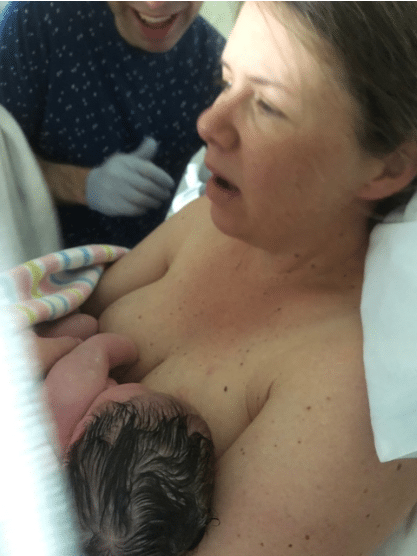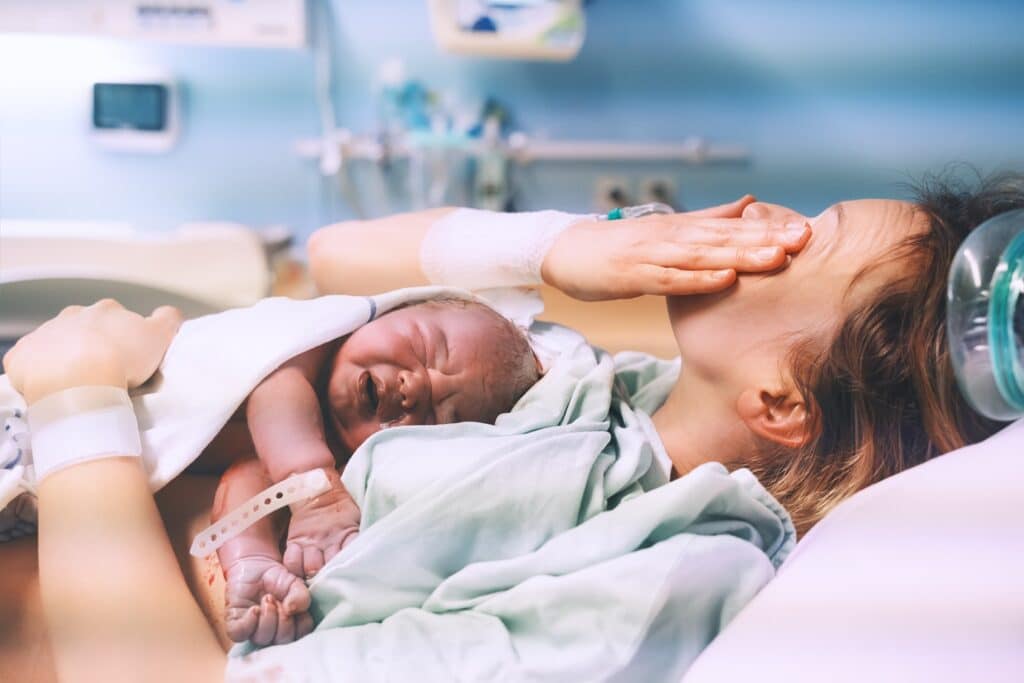Lana Nowakowksi’s first birthing experience was wildly different from her second when it came to informed consent.
Whilst her first birth wasn’t easy, Lana says she felt “calm and safe at every point in the process”. During her second, however, she describes it as “so traumatic” that she doesn’t think she’ll “ever be able to process it all”.
“The experience continues to haunt me, day and night, three and a half years on.”

It was only after the traumatic birthing experience that Lana discovered a procedure performed on her carried serious risk. She hadn’t been informed at the time and says she wouldn’t have given consent if she had been.
“I found out after the birth that the artificial rupture of membranes procedure can result in umbilical cord prolapse, variable fetal heart decelerations due to cord compression, bleeding from the cervix, bleeding from fetal vessels in the membranes, intrauterine infection, placental abruption and amniotic fluid embolism,” Lana says.
“I wasn’t informed of any of those things. I still don’t know what they all mean.”
“I do know that some of them are obstetric emergencies requiring the most urgent care or intervention. If I’d known the risks of the procedure, I would have declined it and asked again for the epidural.”

Birth trauma in Australia is prevalent
Stories like Lana’s are all too common, with new research revealing one in three (36 per cent) birthing parents in Australia agreed to birth interventions without fully understanding the risks.
And over half of parents (60 per cent) report experiencing either mental health challenges, physical challenges or both as a result of their birth experience.
This latest research has been released by the Australasian Birth Trauma Association (ABTA) to coincide with Birth Trauma Awareness Week. Its findings underscore the urgent need for more informed, structured and preemptive consent during birth to support maternal and parental care.
“Our findings and experience show a direct correlation between lack of informed consent and birth-related trauma. Despite there being a desire for comprehensive birth information, we are still seeing a gap in adequate education and consultation for birthing parents about these risks,” says Amy Dawes, co-founder and CEO of the Australasian Birth Trauma Association and 2023 Order of Australia recipient.
“Feeling informed is not just about having access to information. It’s about feeling heard, listened to, and empowered to ask all the questions needed to make informed decisions to navigate childbirth with confidence and clarity. Without this, there is a threat of emotional and physical injury.”

Birth information gaps to be addressed
The research highlights a clear gap in the provision of birth information, as only 34 per cent of healthcare professionals discussed pelvic organ prolapse or nerve damage, only 43 per cent discussed urinary, faecal or wind incontinence, and only 43 per cent discussed severe (third/fourth degree) tears with birthing parents before the birth.
Similarly, participants reported that during antenatal consultation, less than one in three healthcare professionals proactively discussed other emergency complications such as cord prolapse (28 per cent), shoulder dystocia (33 per cent) and the possible need for a hysterectomy (23 per cent).
The consequences of this lack of sufficient information are far-reaching. The research shows that 28 per cent of birthing parents reported experiencing mental health challenges from not feeling informed about the risks of different birthing methods and interventions.
One in four report they suffered physical injuries due to a lack of information about procedures, and 18 per cent believe their baby’s health was affected by interventions during birth.
“Many pregnant women know birthing their baby will be hard work, but very few expect, or are prepared, for their labour and childbirth to be complicated or dangerous,” says Julie Borninkhof, CEO of Perinatal Anxiety and Depression Australia (PANDA).
“Many parents also don’t expect their birth experience to impact their mental health and wellbeing. We need multiple layers of care for women and parents who experience a traumatic birth.”
Borninkhof adds that, for PANDA, the latest research only reinforces the need for a specialised service to support parents as well as “a skilled workforce that can sit at that moment with the individual and address deep conversations like trauma”.

NSW’s recent Inquiry into Birth Trauma, has also evidenced the issue, indicating that ‘prospective parents need to be provided with clear and comprehensive education about all aspects of pregnancy and childbirth so that consent given to any obstetric intervention is fully informed.’
Inquiry findings showed significant shortcomings in obtaining informed consent within maternity systems, highlighting the need for clear guidelines and training, with advocates calling for birth trauma to be a national priority, not just a state issue.

